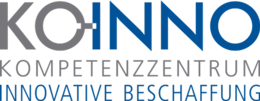
The social aspects in the procurement of IT hardware were the focus of the 6th Conference on Socially Responsible Procurement of IT Hardware, which took place on 21 and 22 June 2018 in Stuttgart. One focus this time was on the extraction of raw materials and the prevention of conflict minerals.
The digital transformation (e-government) has also arrived in Germany's public administration. Specifically, it is about making the public administration in terms of IT infrastructure fit for the future, in order to offer citizens all services digitally. Accordingly, the demand for telecommunications technology and IT devices, such as laptops, telephones and smartphones, is correspondingly high. According to Bitkom, the public sector alone spends 2.4 billion euros a year on IT hardware - with an upward trend.
But especially IT hardware components are not uncontroversial - especially from a social or labor law perspective: the supply chains from the extraction of raw materials through their processing to production are very complex and transnational. Consequently, it is difficult to understand whether, for example, the ILO core labor standards, minimum wages or other health and safety standards are respected.
More transparency required
Against this background, the 6th Conference on Socially Responsible Procurement of IT Hardware not only highlighted the overall problem, but also dealt with possible problem solutions. There are several approaches to creating market transparency. One way is the certification of products (quality label), another is the requirement for self-commitments. Another approach is to pool public market power and use it to provide suppliers with incentive structures to meet social and labor protection standards.
How this can work in practice, the Dataport AöR has presented as a winner of the BME Award "innovation creates advantage" in 2015: As a central IT procurement office for the states of Bremen, Hamburg and Schleswig-Holstein, a framework agreement was sought for the procurement of IT hardware and hardware-related services in order to equip around 60,000 jobs with new hardware and around 30,000 jobs with IT-related services.
Although compliance with social standards was already anchored in the procurement guidelines of the host countries, it has not yet been applied to IT procurement. Due to the specific market conditions, it was unrealistic to find bidders who could cover the requested volume, taking into account the ILO core labor standards, which meant that Dataport AöR needed to find an alternative. For example, bidders were required to submit concepts in the negotiated competition for participation in how they intend to influence compliance with ILO standards among manufacturers and suppliers in the future.
Despite the outlined approaches, it became clear at the 6th specialist conference on the socially responsible procurement of IT hardware in Stuttgart that, above all in this context, a lot still has to be done and the way to socially responsible IT production is still far.